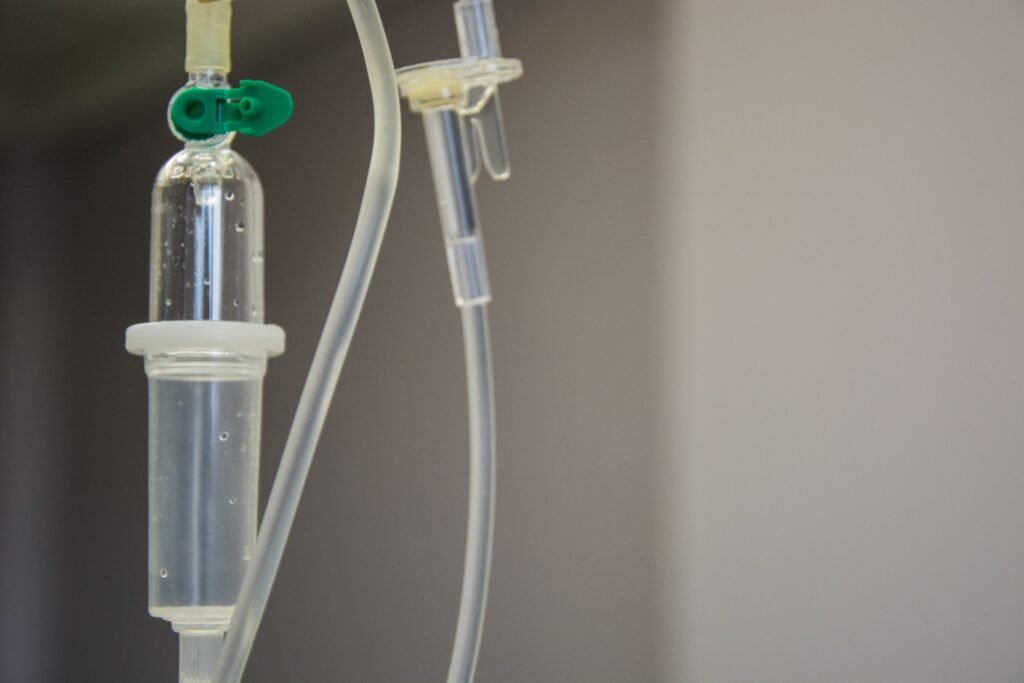So, you’ve probably heard about kidney stones before, but did you know that they can also lead to urinary tract infections? Yeah, it’s not just the excruciating pain that you have to worry about. In this article, we’ll take a closer look at how kidney stones can put you at a higher risk for developing infections in your urinary system and what you can do to prevent them. Trust me, you’ll want to read this if you want to keep your urinary health in check.
Understanding Kidney Stones
Kidney stones are small, hard deposits that form in the kidneys. They can vary in size and shape, and can be as small as a grain of sand or as large as a golf ball. Understanding the different types of kidney stones is important in order to determine the most effective treatment and prevention strategies.

This image is property of images.unsplash.com.
Types of kidney stones
There are four main types of kidney stones:
-
Calcium stones: These are the most common type and are typically made of calcium oxalate. They form when there is an excess of calcium and oxalate in the urine.
-
Uric acid stones: These develop when there is too much uric acid in the urine. This can occur in people who consume a high-purine diet or have conditions such as gout.
-
Struvite stones: These are less common and typically form as a result of a urinary tract infection. They can grow quickly and become quite large.
-
Cystine stones: These are rare and occur in people with a hereditary disorder that causes the kidneys to excrete too much cystine in the urine.
Causes of kidney stones
Several factors can contribute to the formation of kidney stones:
-
Dehydration: When there is not enough water in the body, urine becomes concentrated and can lead to the formation of stones.
-
Diet: Consuming a diet high in salt, sugar, and animal protein can increase the risk of developing kidney stones.
-
Family history: If someone in your family has had kidney stones, you may be more likely to develop them as well.
-
Certain medical conditions: Conditions such as urinary tract infections, kidney disease, and certain metabolic disorders can increase the risk of kidney stone formation.
Symptoms of kidney stones
The symptoms of kidney stones can vary depending on the size and location of the stone. Common symptoms include:
-
Severe pain in the back or side: This pain often comes in waves and can be excruciating.
-
Blood in the urine: This can be a sign of a kidney stone passing through the urinary tract.
-
Frequent urination: Kidney stones can cause an increased need to urinate, even if only small amounts of urine are produced.
-
Cloudy or foul-smelling urine: This can be a sign of an infection or the presence of kidney stones.
It is important to seek medical attention if you experience any of these symptoms, as kidney stones can lead to complications if left untreated.
Preventing Kidney Stones
While kidney stones can be a painful and uncomfortable condition, there are several lifestyle changes that can help prevent their formation. By following these preventative measures, you can reduce your risk of developing kidney stones.
Stay hydrated
Staying hydrated is crucial in preventing kidney stones. Drinking an adequate amount of water each day helps dilute the urine and prevent the concentration of minerals and other substances that contribute to stone formation. Aim to drink at least 8 cups (64 ounces) of water daily, and even more on hot days or during physical activity.
Follow a balanced diet
Eating a balanced diet is essential to maintaining overall health, including urinary health. Incorporating a variety of fruits, vegetables, whole grains, and lean proteins can help prevent the formation of kidney stones. Avoid excessive consumption of processed foods, fast foods, and sugary beverages, as they can increase the risk of stone formation.
Limit salt intake
A high-sodium diet can contribute to the development of kidney stones, as it increases the amount of calcium in the urine. Limiting your salt intake can help reduce the risk of stone formation. Aim to consume no more than 2,300 milligrams of sodium per day, which is the recommended daily limit for most adults.
Reduce intake of oxalate-rich foods
Oxalate is a substance found in many foods, including spinach, rhubarb, beets, nuts, and chocolate. Consuming excessive amounts of oxalate-rich foods can increase the risk of calcium oxalate stone formation. While it is not necessary to completely eliminate these foods from your diet, it is advisable to consume them in moderation and ensure a balanced intake of other nutrients.
Control weight
Maintaining a healthy weight is important in preventing kidney stones. Obesity can increase the risk of stone formation, as it can lead to changes in urinary function. By maintaining a healthy weight through regular physical activity and a balanced diet, you can reduce the likelihood of developing kidney stones.
Avoid certain medications
Some medications, such as diuretics, calcium-based antacids, and certain antibiotics, can increase the risk of kidney stone formation. If you are prone to developing kidney stones, it is important to discuss this with your healthcare provider before starting any new medications. They can provide guidance on alternative options or adjustments to your current medication regimen.
Maintaining Urinary Health
In addition to preventing kidney stones, it is important to maintain overall urinary health. By implementing good hygiene practices and making certain lifestyle changes, you can reduce the risk of urinary tract infections (UTIs) and other urinary issues.
Practice good hygiene
Practicing good hygiene is crucial in maintaining urinary health. This includes washing the genital area with mild soap and water regularly, especially before and after sexual activity. Avoid using harsh soaps or douches, as they can disrupt the natural balance of bacteria in the urinary tract.
Empty the bladder regularly
Emptying the bladder regularly is important in preventing UTIs and other urinary issues. Holding urine for long periods of time can increase the risk of bacterial growth and infection. Aim to urinate at least every few hours, or whenever you feel the urge to go.
Urinate after sexual activity
Urinating immediately after sexual activity can help flush out any bacteria that may have entered the urinary tract. This can reduce the risk of UTIs, which are more common in individuals who are sexually active.
Wipe properly
Proper wiping techniques after using the toilet can help prevent the spread of bacteria and reduce the risk of UTIs. Always wipe from front to back, as wiping from back to front can introduce bacteria from the anal area to the urethra.
Avoid holding urine for too long
Holding urine for extended periods of time can increase the risk of urinary tract infections. When you feel the urge to urinate, it is important to find a restroom and empty your bladder. Ignoring the urge can lead to bacterial growth and potential infection.

This image is property of images.unsplash.com.
Avoid bladder irritants
Certain substances can irritate the bladder and increase the risk of urinary issues. These include caffeine, alcohol, spicy foods, artificial sweeteners, and acidic beverages. Limiting or avoiding these substances can help maintain urinary health.
Preventing Urinary Tract Infections (UTIs)
Urinary tract infections (UTIs) can be uncomfortable and disruptive to daily life. However, there are several preventative measures that can be taken to reduce the risk of UTIs and maintain urinary health.
Drink plenty of fluids
Drinking plenty of fluids, especially water, is essential in preventing UTIs. Adequate hydration helps flush out bacteria from the urinary tract, reducing the risk of infection. Aim to drink at least 8 cups (64 ounces) of water daily.
Urinate frequently
Frequent urination helps eliminate bacteria from the urinary tract, reducing the risk of infection. It is important to listen to your body’s signals and empty your bladder whenever you feel the urge to urinate.
Urinate before and after sexual activity
Urinating before and after sexual activity can help flush out any bacteria that may have entered the urinary tract. This reduces the risk of UTIs, which are more common in individuals who are sexually active.
Clean the genital area properly
Proper cleaning of the genital area is important in preventing UTIs. Wash the genital area with mild soap and water regularly, especially before and after sexual activity. Avoid using harsh soaps or douches, as they can disrupt the natural balance of bacteria in the urinary tract.
Avoid irritating feminine products
Certain feminine products, such as scented sprays, douches, and powders, can disrupt the natural balance of bacteria in the urinary tract and increase the risk of UTIs. It is best to avoid using these products and opt for gentle, fragrance-free options instead.
Avoid using douches and harsh soaps
Douching and using harsh soaps in the vaginal area can disrupt the natural balance of bacteria, making the urinary tract more susceptible to infections. It is important to avoid these practices and use mild, gentle cleansers when needed.
Managing UTIs
If despite preventative measures, you still develop a urinary tract infection (UTI), there are steps you can take to manage it effectively.

This image is property of images.unsplash.com.
Seek medical attention
It is important to seek medical attention if you suspect you have a UTI. A healthcare professional can confirm the diagnosis and prescribe antibiotics to treat the infection. Prompt treatment is crucial in preventing the infection from spreading to the kidneys.
Take prescribed antibiotics
Antibiotics are commonly prescribed to treat UTIs. It is important to take the full course of antibiotics as prescribed by your healthcare provider, even if symptoms improve before completing the medication. This helps ensure that the infection is fully eradicated.
Follow proper hygiene practices
Practicing good hygiene is important when managing a UTI. This includes washing the genital area with mild soap and water regularly, especially before and after sexual activity. Avoid using harsh soaps or douches, as they can disrupt the natural balance of bacteria in the urinary tract.
Use a heating pad for pain relief
UTIs can cause discomfort and pain in the lower abdomen and pelvic area. Using a heating pad or taking a warm bath can provide relief from these symptoms. It is important to avoid applying heat directly to the skin and to use a cloth barrier between the heating pad and your body.
Drink cranberry juice
Cranberry juice has long been believed to help prevent and treat UTIs. While the evidence is mixed, some studies suggest that cranberry juice may help prevent bacteria from attaching to the urinary tract lining. If you enjoy cranberry juice, it may be worth incorporating into your routine, but it should not replace proper medical treatment.
Lifestyle Changes for Urinary Health
Adopting certain lifestyle changes can improve urinary health and reduce the risk of urinary tract infections and other urinary issues.
Quit smoking
Smoking can increase the risk of urinary tract infections and other urinary issues. Quitting smoking is not only beneficial for overall health, but it can also help maintain urinary health. There are many resources available to help individuals quit smoking, including nicotine replacement therapy and support groups.
Limit alcohol and caffeine intake
Excessive alcohol and caffeine consumption can irritate the bladder and contribute to urinary issues. Limiting your intake of these substances can help maintain urinary health. It is also important to note that both alcohol and caffeine can act as diuretics, increasing urine production and potentially leading to dehydration if not balanced with adequate fluid intake.
Exercise regularly
Regular exercise is important for overall health, including urinary health. Physical activity helps maintain a healthy weight, improves circulation, and strengthens the immune system, all of which can contribute to urinary health. Aim for at least 150 minutes of moderate-intensity exercise per week, as recommended by health experts.
Manage stress levels
Chronic stress can weaken the immune system and disrupt the body’s natural balance, making individuals more susceptible to urinary issues. Finding healthy ways to manage stress, such as through relaxation techniques, exercise, or engaging in hobbies, can help maintain overall urinary health.
Seeking Medical Help
While preventative measures can significantly reduce the risk of urinary issues, it is important to seek medical help when necessary.
Consult a urologist or nephrologist
If you have a history of kidney stones or urinary tract infections, or if you experience persistent or recurrent urinary issues, it may be beneficial to consult a urologist or nephrologist. These healthcare professionals specialize in the diagnosis and treatment of urinary conditions and can provide guidance and recommendations tailored to your specific needs.
Get regular check-ups
Regular check-ups with your primary care physician or a healthcare provider specializing in urinary health are important in maintaining overall urinary health. These check-ups allow for the detection and early treatment of any underlying conditions that could contribute to urinary issues.
Discuss family history
Informing your healthcare provider about any family history of kidney stones, urinary tract infections, or other urinary conditions is important. Family history can play a role in determining your risk of developing these conditions, and your healthcare provider can take this into account when developing a personalized plan for urinary health.
Follow doctor’s advice
Following your healthcare provider’s advice and recommendations is crucial in maintaining urinary health. They can provide guidance on lifestyle changes, preventative measures, treatment options, and any necessary medications. It is important to communicate openly with your healthcare provider, ask questions, and actively participate in your own urinary health.
Conclusion
Understanding kidney stones and maintaining urinary health are essential for overall well-being. By following preventative measures, adopting healthy lifestyle habits, and seeking appropriate medical help when needed, you can reduce the risk of kidney stones, urinary tract infections, and other urinary issues. Remember to stay hydrated, follow a balanced diet, practice good hygiene, and communicate openly with your healthcare provider to ensure optimal urinary health throughout your life.

